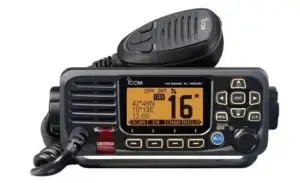 Purpose
Purpose
The aim of VHF Marine Radio Short Range course is to prepare students for the use of Maritime VHF for routine and emergency Procedures.
Target Audience
The course is for Offshore Oil and Gas rigs and work barges who do not required to keep GMDSS equipment as per SOLAS, but carry only basic VHF radio for local short range communication.
Course Content
1.The general principles and basic features of the maritime mobile service relevant to vessels Not subject to a compulsory fit under the SOLAS convention:
- Types of communication of the maritime mobile service
- Types of station in the maritime mobile service
- Elementary knowledge of radiofrequencies and channels appropriate to the VHF maritime mobile band
- Functionality of ship station equipment
2. Detailed working knowledge of radio equipment:
- Radiotelephone channels
- Basic controls and usage
- Portable two-way VHF radiotelephone apparatus
- Maritime VHF antennas
- Purpose and use of Digital Selective Calling (DSC) facilities
- Types of Call
- The Maritime Mobile Service Identity (MMSI) number system
- Call categorisation and priority (eg. Mayday)
- Call telecommand and traffic information
- VHF DSC facilities and usage
- Protection of distress frequencies
- Maritime Safety Information
- Alerting and locating signals
- Emergency Position Indication Radio Beacons (EPIRBs)
- Search and Rescue Radar Transponder (SART)
3. Operational Procedures and regulations for VHF radiotelephone communications:
- Ability to exchange communications relevant to the safety of life at sea
- Distress communications
- Urgency communications
- Safety communications
- Reception of MS/ by VHF radiotelephone
- Awareness of the existence and use of the IMO Standard Marine Navigational Vocabulary
- Use of international phonetic alphabet
- Regulations, Obligatory procedures and practices
- Practical and theoretical knowledge of radiotelephone call procedures
- Traffic charges
- Practical traffic routines
VHF Marine Radio Short Range Course enables delegates to know in depth knowledge on marine communication rules and how the different communication channels are allocated and the basic system / purpose of allocation of these channels.
| Course | Fee INR | Duration | Course Timing | Date Commence | Remarks |
|---|---|---|---|---|---|
| VHF Marine Radio | 20,000 | 1 day | 11:00 – 18:00 | On Demand | Practical on Govt Licensed Equipment |
VHF Marine Radio Short Range Course was last modified: May 10th, 2024 by admin
